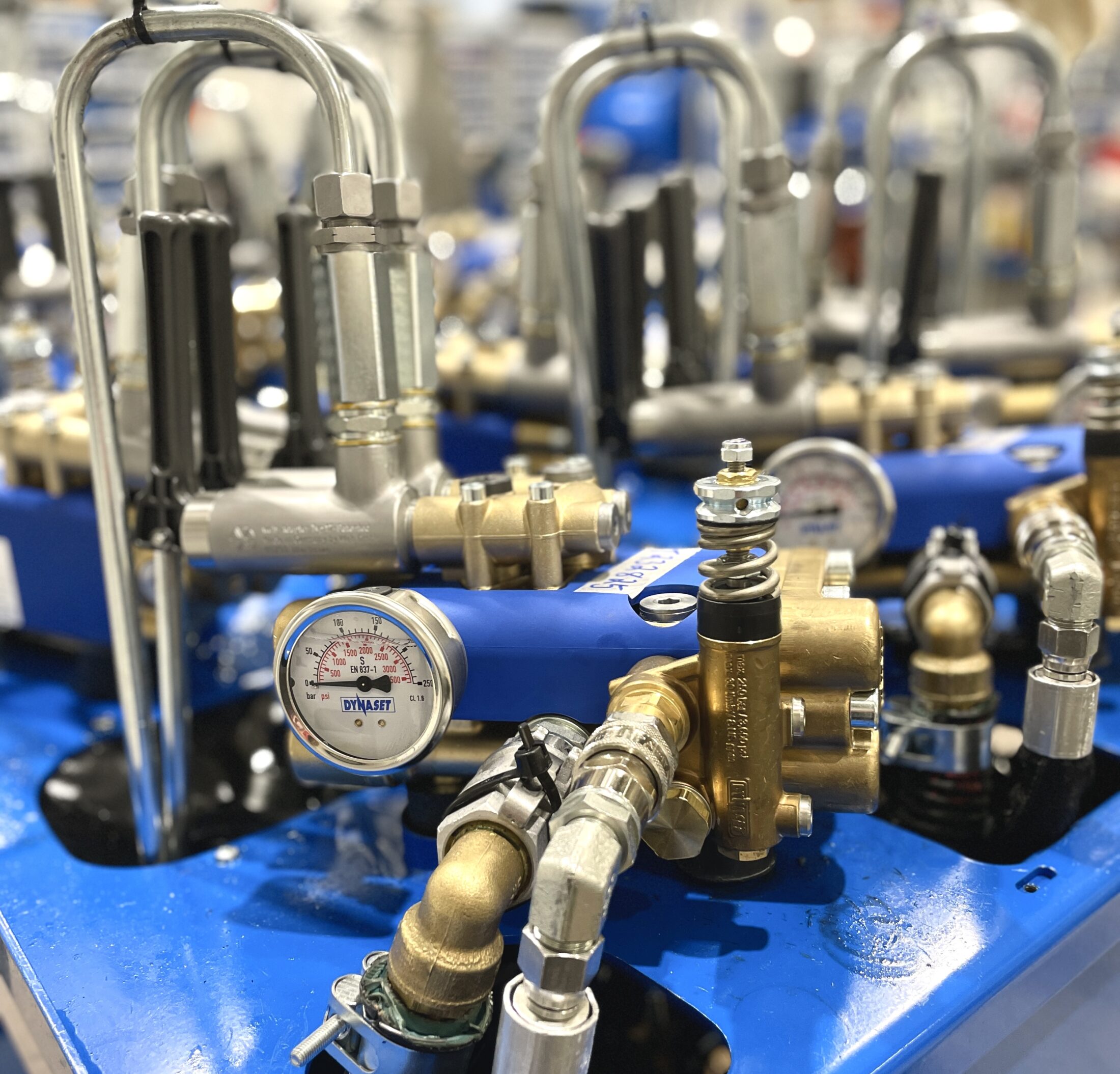DYNASET products are cost-effective and reliable investments for the customer. Comprehensive testing ensures reliable and long-lasting products.
Each DYNASET product comes with a 2000-hour or two-year guarantee, and all products are extensively tested during product development. Each product is also test-driven at the end of the manufacturing process. The tests are based on the products’ technology and a three-level test needs classification system that is defined by the Dynaset engineering department. Testing is carried out under laboratory conditions and in endurance test containers, where tests can be controlled without disturbing the rest of the factory. The purpose of all testing is to find the extreme limits of the product.
Likewise, HPW Hydraulic High Pressure Water Pump models have undergone 2000 hours of testing during the development phase. These tests focus on the stress resistance of moving parts such as seals or water valves. Components are measured before and after the tests to determine the effects of the test run.

Observing Environmental Impacts of Testing and Products
Testing is a key part of product development and quality ensure, and Dynaset has improved process’ energy efficiency to the extreme. For example, the heat generated from testing is used to warm up the factory and the same water is recycled during test runs of HPW High Pressure Water Pumps. In addition, endurance testing has been improved to match the 2000-hour test.
Some of the energy generated from the tests is already used for heating, but the future goal is to use all the energy for the different factory functions. In addition, a recently completed factory extension enables the use of larger electric machines. The increased electrical capacity will reduce the need for diesel, and the intention is to replace the diesel-powered test machines with electric ones. The factory’s own solar power plant on the roof will also be used as a source of energy.
Environmental impacts play an increasingly important role in product development and are assessed during the product design phase throughout the product’s future life cycle, for example, in terms of the recyclability of parts, materials, and coatings.
